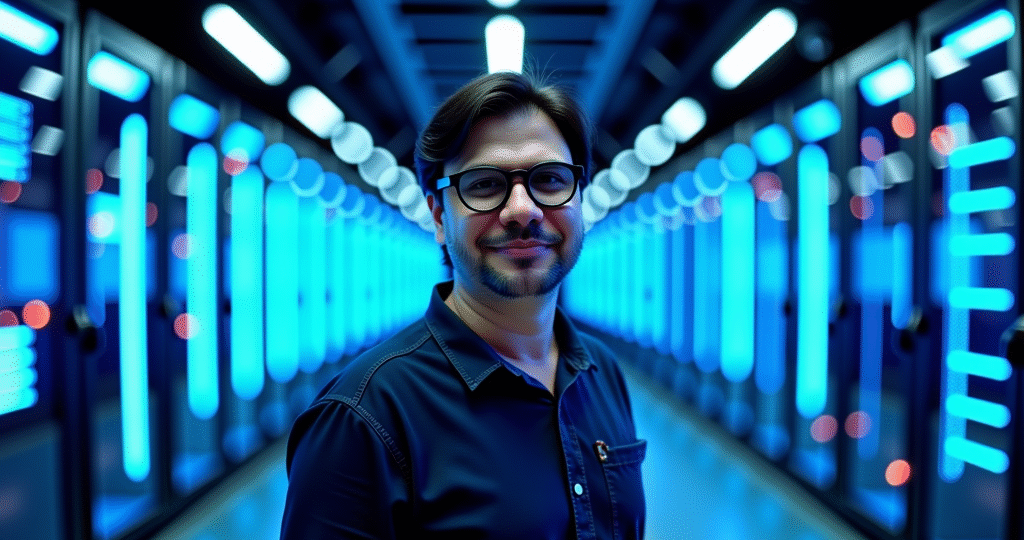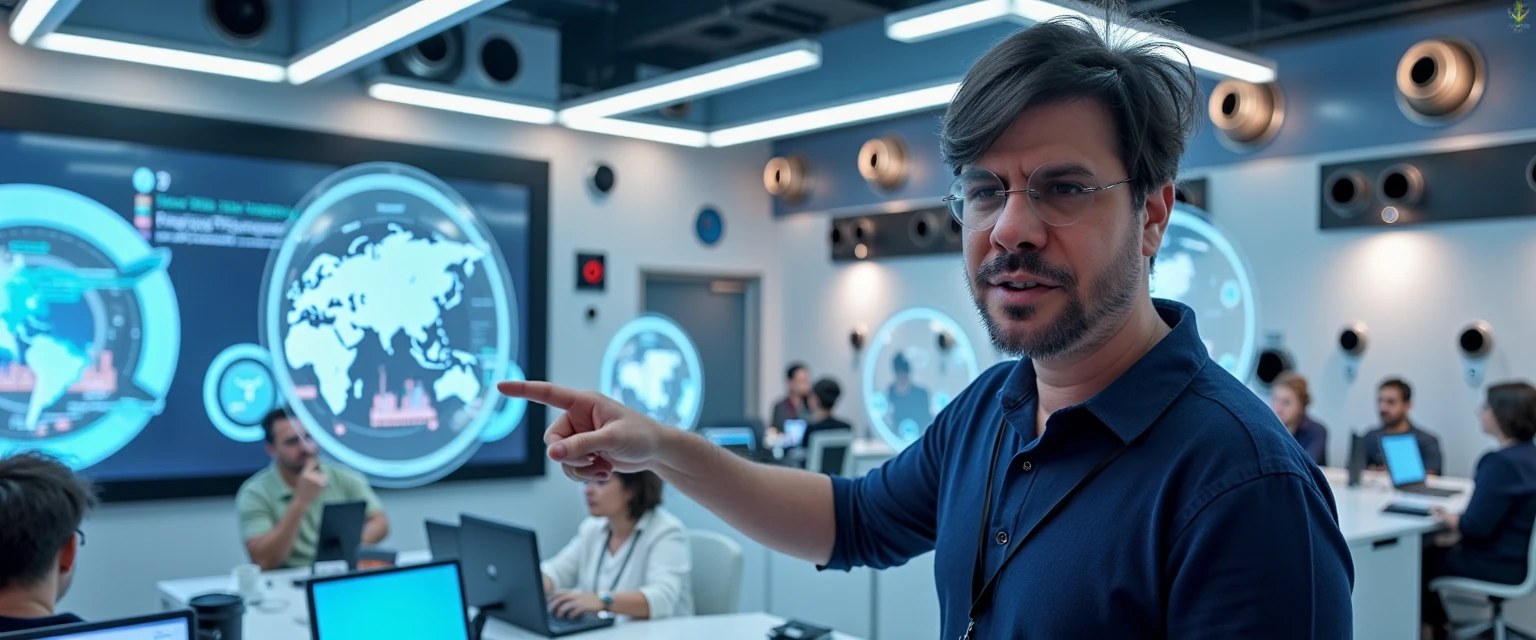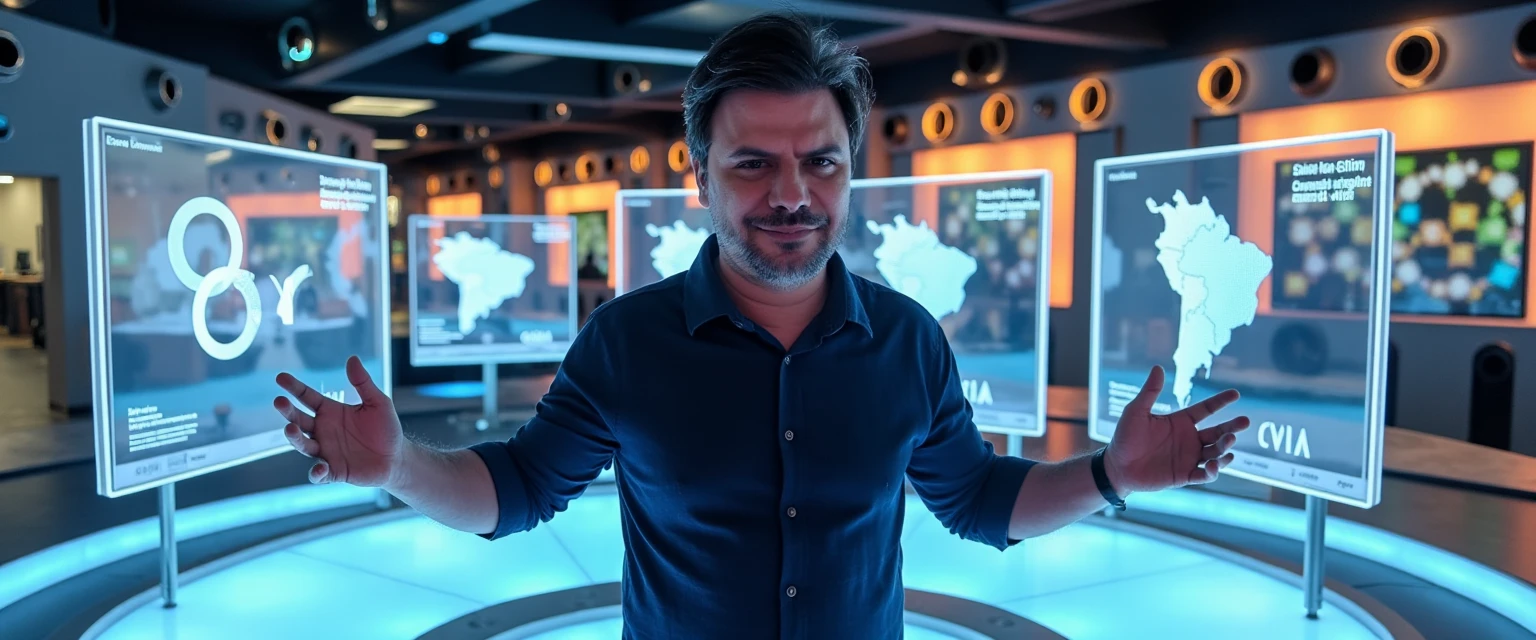Uberlândia Receives R$6 Billion in AI Data Center While 70% of Professionals Embrace Technology — The Panorama of the Last 24h
July 9, 2025 | by Matos AI

As Brazil emerges as a global leader in the regulation of artificial intelligence, the last 24 hours have brought developments that are completely redefining the national technology landscape. Between billion-dollar investments, cultural resistance, and profound transformations in the job market, we are witnessing a unique moment in the history of Brazilian innovation.
The Largest Investment in AI in Southeast Brazil
The most shocking news of the last few hours comes from Uberlândia, which received the first Artificial Intelligence Data Center in the Southeast, with an initial investment of R$ 6 billion from the North American company RT-One. This isn't just an impressive number—it's a milestone that positions Brazil as a preferred destination for investments in technological infrastructure.
The project promises to create 2,000 permanent jobs in the first three years, occupying a 245,000 m² technology park with a potential energy capacity of 400 MW. But what stands out most to me is the selection criteria: the local startup ecosystem.
Join my WhatsApp groups! Daily updates with the most relevant news in the AI world and a vibrant community!
- AI for Business: focused on business and strategy.
- AI Builders: with a more technical and hands-on approach.
In my experience accelerating thousands of startups, I've always maintained that innovation doesn't happen in a vacuum. It requires a robust ecosystem, academic support, and skilled talent. Uberlândia has managed to strategically bring these elements together, proving that mid-sized cities can compete globally when they consistently invest in innovation.
Cultural Resistance to AI: Lessons from Wikipedia
At the same time, the Wikipedia faces internal resistance to implementing AI in their processes. The volunteer community fears that technology will compromise the platform's quality and reliability. It's a tension we know well: how to balance technological efficiency with human values?
The Wikimedia Foundation's decision to use AI only as a supporting tool, never as a replacement for human labor, offers a valuable lesson. AI should amplify human capabilities, not replace them completely.This philosophy aligns perfectly with what I've observed in the most successful startups.
From Assistance to Agency: The Future Is Here
One of the most insightful analyses of the last few hours comes from Época Negócios on the evolution of assistants into AI agentsBrazilian startups, such as fintech Magie, already use WhatsApp as their main channel for agents that transcend the traditional assistant.
This is the moment I call the “interface inflection.” We’re no longer talking about chatbots that answer questions, but autonomous agents that make decisions and perform tasksOpenAI has invested US$1.4 billion in “AI-first” devices focused on screenless voice agents, signaling a revolution in the way we interact with technology.
For entrepreneurs, this represents a unique opportunity: to completely rethink the customer experience. Those who can create frictionless interfaces and leverage proprietary data will have a decisive competitive advantage.
The Adoption Paradox: 70% Hug, 82% Have No Training
A fascinating fact emerges from Alice's research: More than 701% of Brazilian professionals see AI as a strategic allyAmong daily users, that number rises to 77%. But here's the paradox: 82% do not use AI due to lack of adequate training.
This gap represents the biggest business opportunity I see right now. Companies that invest in adequate training will gain a huge competitive advantage. Data shows that AI users not only become more productive but also have better physical and mental health habits.
Vibe Coding: The New Frontier of Technological Creativity
THE CartaCapital brought an interesting analysis on “vibe coding” — an approach that places human-AI interaction at the center of the creative process. Cláudio Lúcio of A3Data compares the method to a "cyborg with AI," where human intuition guides automated execution.
This approach reminds me of the early days of Startup Farm, when we realized that the best results came not from full automation, but from intelligent symbiosis between technology and human creativityMcKinsey studies indicate that advanced use of AI can increase operational efficiency by up to 25%, but only when implemented with adequate human supervision.
The Authenticity Dilemma: When AI Invades Art
A revealing episode took place in Curitiba, where Kotter Publishing canceled a literary award after identifying works produced by AIOf the 900 entries, approximately 40 showed clear signs of AI use, and another 60 showed suspicious signs.
This situation illustrates a fundamental challenge that we will increasingly face: How do we preserve human authenticity in a world where AI can imitate almost any form of creation? The answer is not to resist technology, but to redefine what we value in human creation.
The Scientific Alert: When Ease Becomes a Trap
Perhaps the most important news of the last few hours is a MIT study reveals the negative effects of AI on human cognition. Researchers have found that overreliance on AI reduces neural connectivity and compromises critical thinking.
This discovery is a red flag for all of us. As someone who has always championed the importance of active learning and critical thinking, I see an opportunity here to reposition AI as expansion tool, not replacement of human capabilities.
Who Will Be Most Affected: Young or Experienced?
THE Estadão brought an analysis on which workers will be most harmed by AIADP data shows a decline in employment for junior IT professionals, but an increase for experienced IT professionals, indicating uneven impacts.
In my experience mentoring professionals in career transition, I have observed that adaptability matters more than ageProfessionals who embrace AI as a work tool, regardless of age, are positioning themselves better in the market.
The Turning Point
Analyzing these news stories together, I see a clear pattern: we are living through a turning point for AI in Brazil. It's no longer a question of "if" technology will transform our economy, but rather "how" we will position ourselves in this transformation.
The billion-dollar investment in Uberlândia, the cultural resistance of Wikipedia, the evolution towards autonomous agents, the adoption paradox, and scientific warnings form a mosaic that defines our technological future. Companies and professionals that can navigate these tensions wisely will come out ahead..
Building the Future with Purpose
As a privileged observer of Brazilian technological evolution, these past 24 hours have been a microcosm of what awaits us. AI is not just a tool—it is a catalyst that amplifies our capabilities and, at the same time, forces us to redefine what it means to be human at work.
The key to success is not in resisting change nor in blindly embracing it, but in create an intelligent symbiosis between technology and human purpose. Startups that can do this will not only survive, but will lead the next wave of innovation.
In my mentoring, I help startups and professionals navigate this very transition—finding ways to use AI as a catalyst for growth without losing the human essence that creates real value. Because, at the end of the day, technology is just a tool. What matters is how we use it to build a better future.
✨Did you like it? You can sign up to receive 10K Digital's newsletters in your email, curated by me, with the best content about AI and business.
➡️ Join the 10K Community here
RELATED POSTS
View all



